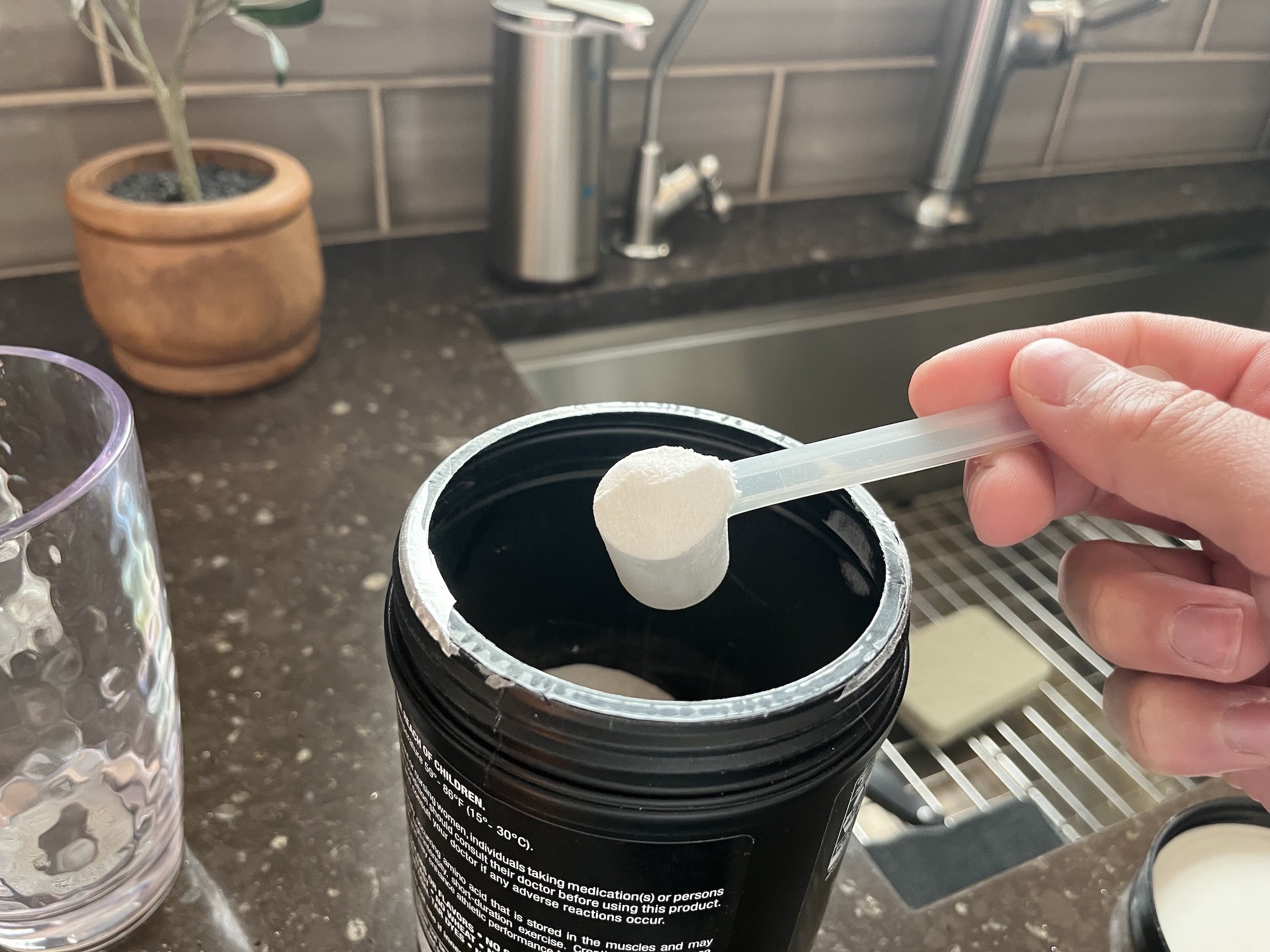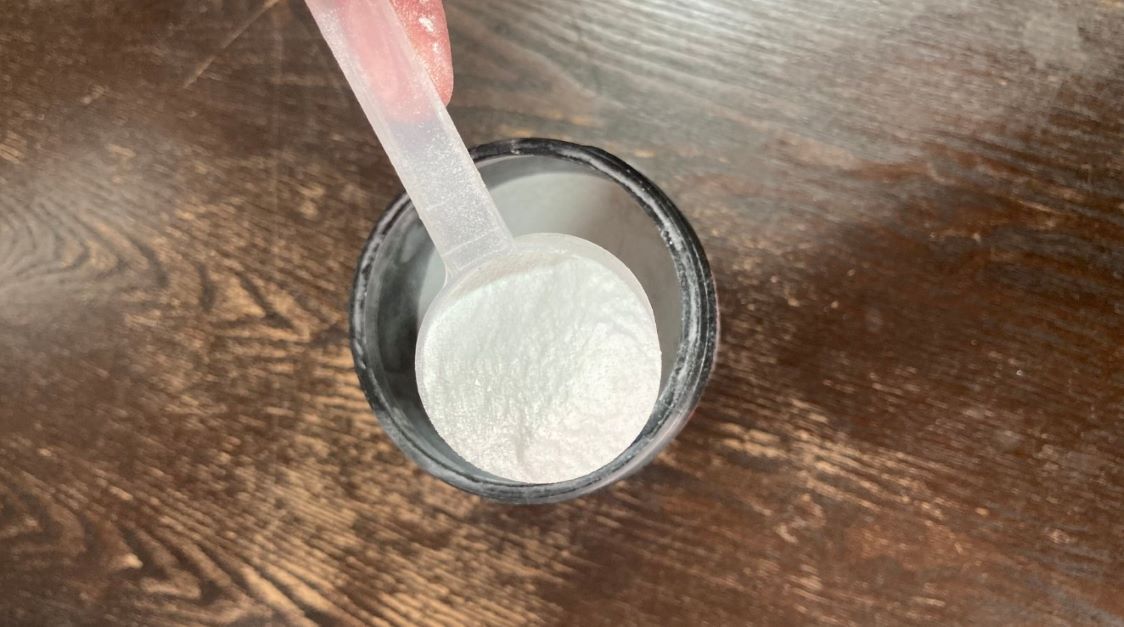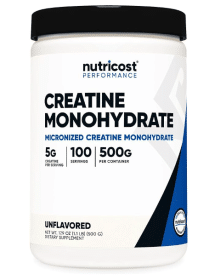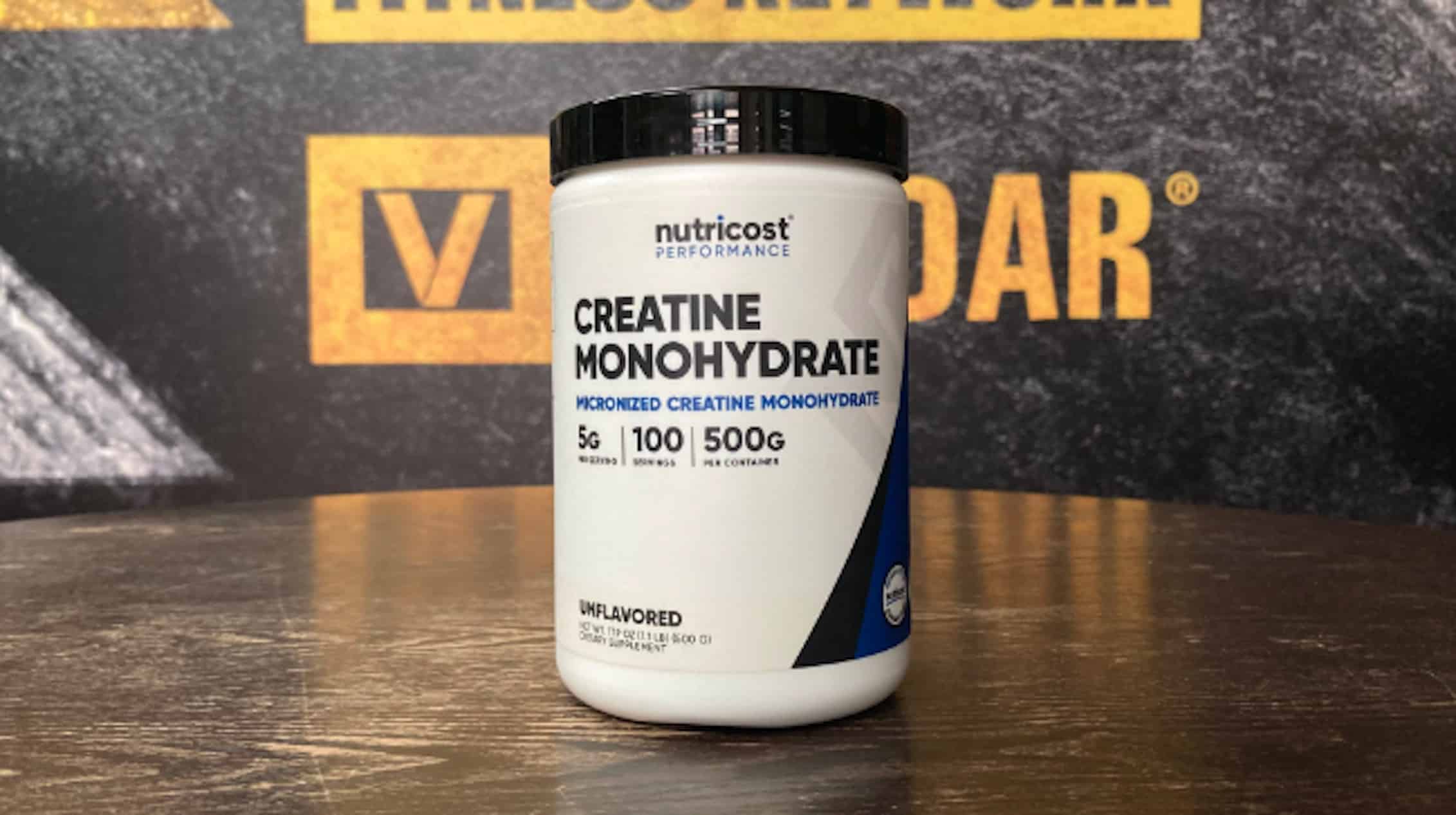Does your diet contain a good amount of creatine?
Creatine is a popular supplement known for its ability to enhance muscle mass and improve exercise performance. While creatine is a common supplement in many stacks, people overlook the fact that creatine can also be obtained naturally through foods. In fact, there are several foods that are rich in creatine and can be incorporated into your diet to support your fitness goals. So what are the top foods to provide you with creatine?
Let’s break down what foods should be in your diet to give you a good amount of this nutrient.
What is Creatine?
Creatine is a compound that is naturally synthesized in the body from the amino acids arginine, glycine, and methionine. It plays a vital role in the production of adenosine triphosphate (ATP), which is the primary energy source for muscle contractions. Adequate creatine levels in the muscles can lead to increased ATP production, resulting in improved exercise performance and muscle strength.
While creatine supplements are widely available and effective, some individuals may prefer to obtain creatine through natural food sources. This can be particularly beneficial for those who want to minimize supplement intake or prefer a more holistic approach to their fitness routine. By incorporating creatine-rich foods into your diet, you can naturally enhance your workouts and support your overall fitness goals. We are going to explore the best foods with creatine that can help you optimize your workouts and improve exercise performance.
Let’s take a look at the best foods with creatine.
7 Top Foods with Creatine to Boost Your Workout Performance
When it comes to boosting your workout performance, incorporating foods with creatine into your diet can provide a natural and effective way to enhance your fitness routine. From red meat to legumes, there are several options to choose from. These foods are not only delicious but also packed with essential nutrients to support muscle growth and energy production. By including these creatine-rich foods in your diet, you can optimize your workouts and take your exercise performance to the next level.
1. Red Meat – A Prime Source of Creatine for Muscle Strength
Red meat is one of the most well-known sources of creatine and is a prime option for those looking to increase their muscle strength. Beef, in particular, is rich in creatine and provides a significant amount per serving. A 4-ounce serving of beef can contain approximately 0.9 grams of creatine, making it an excellent choice for individuals looking to enhance their muscle mass.
The creatine content in red meat is due to the high levels of amino acids needed for creatine synthesis. These amino acids, such as arginine, glycine, and methionine, are abundant in red meat, making it a natural source of creatine. By including red meat in your diet, you can ensure that your body receives an adequate amount of creatine to support muscle strength and growth. However, it’s important to choose lean cuts of red meat to minimize unhealthy fat intake and prioritize your overall health.
2. Fish – Optimal for Lean Muscle and Recovery
Fish is another excellent source of creatine and is optimal for individuals looking to build lean muscle mass and support recovery. Fish, particularly fatty fish like salmon and tuna, not only provide essential omega-3 fatty acids but also contain natural sources of creatine.
Omega-3 fatty acids are known for their numerous health benefits, including reducing inflammation, improving heart health, and supporting brain function. In addition, recent research has shown that omega-3 fatty acids can also enhance athletic performance by improving muscle recovery, strength, and even brain function.
By incorporating fish into your diet, you can reap the benefits of both omega-3 fatty acids and natural creatine. These nutrients work together to support lean muscle mass, aid in muscle recovery, and optimize your exercise performance. Whether you prefer grilled salmon or a tuna salad, adding fish to your meals can provide a delicious and nutritious way to enhance your workouts.
3. Poultry – Versatile Creatine Source for Daily Diets
Poultry, including chicken and turkey, is a versatile and readily available source of creatine that can be easily incorporated into daily diets. Chicken breast, in particular, is a lean protein option that offers an array of health benefits, including dietary creatine.
A 4-ounce serving of chicken breast can contain approximately 0.4 grams of creatine, making it an excellent choice for individuals looking to increase their muscle stores. Poultry is not only a good source of creatine but also provides essential amino acids that support muscle growth and repair. By including chicken or turkey in your meals, you can ensure that you’re getting the necessary nutrients to optimize your workouts and support your fitness goals. Whether grilled, baked, or added to salads, poultry offers a versatile and delicious way to incorporate creatine into your diet.
4. Dairy Products – Supporting Muscle Growth Naturally
Dairy products, such as milk, yogurt, and cheese, are not only delicious but also natural sources of creatine. While the creatine content in dairy products is relatively low compared to meats and fish, they can still contribute to overall creatine levels in the body.
Dairy products provide essential nutrients, including calcium, protein, and vitamins, that support muscle growth and overall health. By incorporating dairy products into your diet, you can ensure that you’re getting a range of nutrients, including natural creatine, to support your fitness goals.
It’s important to note that while dairy products can be a source of natural creatine, they may not be suitable for individuals with lactose intolerance or dairy allergies. In such cases, it’s essential to explore alternative sources of creatine or consider creatine supplementation. However, for those who can tolerate dairy, incorporating milk, yogurt, and cheese into your diet can provide a delicious and nutritious way to support muscle growth and optimize your workouts.
5. Pork – Rich in Creatine for Energy and Endurance
Pork is another excellent source of creatine and can provide a significant amount of this compound to support energy production and endurance during workouts. A 4-ounce serving of pork tenderloin can contain approximately 0.7 grams of creatine, making it a valuable option for individuals looking to optimize their exercise performance.
Creatine plays a vital role in energy production within the muscles, as it helps generate adenosine triphosphate (ATP), which is the primary energy source for muscle contractions. By incorporating pork into your diet, you can support your creatine stores and enhance your energy production during workouts.
Pork is also a versatile meat option that can be incorporated into various dishes, from stir-fries to roasts. By including pork in your meals, you can enjoy the benefits of natural creatine and support your energy and endurance levels during exercise.
6. Eggs – Convenient and Nutritious Creatine Carrier
Eggs are a convenient and nutritious food source that can provide a small amount of creatine to support muscle growth and overall health. While the creatine content in eggs is relatively low, incorporating them into your diet can contribute to overall creatine levels.
Eggs are not only a source of creatine but also provide essential amino acids that support muscle growth and repair. Amino acids are the building blocks of protein, which is essential for skeletal muscle development and function.
By including eggs in your diet, you can enjoy the convenience and nutritional benefits they offer. Whether scrambled, baked, or poached, eggs provide a versatile and delicious way to include creatine-rich foods in your meals.
7. Legumes – Vegetarian-Friendly Creatine Option
Legumes, such as beans, lentils, and chickpeas, are vegetarian-friendly options that can provide a small amount of creatine to support muscle growth and overall health. While legumes are not as rich in creatine compared to animal-based sources, they can still contribute to overall creatine intake for individuals following a vegan or vegetarian diet.
Legumes are also high in protein, fiber, and essential nutrients, making them an excellent addition to any diet. By incorporating legumes into your meals, you can ensure that you’re getting the necessary nutrients, including natural creatine, to support your fitness goals.
For individuals following a vegan or vegetarian diet, obtaining creatine from food sources alone may not be sufficient. In such cases, considering a creatine supplement may be beneficial to ensure optimal creatine levels. However, incorporating legumes into your diet can provide a valuable source of natural creatine and support your overall health and well-being.
Understanding Creatine: Benefits Beyond Muscle
In addition to its well-known benefits for muscle growth and exercise performance, creatine offers a range of advantages beyond the realm of muscles. Research has shown that creatine supplementation may have positive effects on brain health, cognitive function, and athletic performance.
By understanding these additional benefits, individuals can make informed decisions about incorporating creatine into their fitness routine and overall lifestyle. Whether you’re looking to improve your mental focus, enhance your athletic performance, or support your brain health, creatine may offer valuable advantages beyond muscle growth.
Enhancing Athletic Performance Through Natural Sources
Natural sources of creatine, such as the previously mentioned foods, can have a significant impact on athletic performance. Adequate creatine levels in the muscles can lead to increased ATP production, which can enhance physical performance, including exercise performance.
Whether you’re an athlete or someone looking to optimize your workouts, incorporating natural sources of creatine can provide a natural and effective way to improve athletic performance. By including creatine-rich foods in your diet, you can support your energy production, increase muscle strength, and enhance your overall physical performance. Whether it’s lifting weights, sprinting, or engaging in high-intensity exercises, natural creatine sources can play a vital role in helping you reach your fitness goals.
Accelerating Recovery with Creatine-Rich Foods
Recovery is an essential aspect of any fitness routine, and creatine-rich foods can play a valuable role in this process. Creatine has been shown to reduce muscle damage and inflammation, leading to faster recovery times and improved muscle repair.
By incorporating creatine-rich foods into your diet, you can support the recovery process and minimize muscle damage. Whether you’re engaging in intense workouts or participating in sports, creatine-rich foods can provide the necessary nutrients to optimize your recovery and ensure that you’re ready for your next workout. By supporting muscle repair and reducing inflammation, creatine-rich foods can help you bounce back faster and perform at your best.
Creatine’s Role in Brain Function and Cognitive Health
Creatine’s benefits extend beyond muscle growth and exercise performance to brain function and cognitive health. Research has shown that creatine supplementation may have positive effects on brain health and cognitive function.
Creatine plays a vital role in energy production in the brain, as it helps generate ATP, which is essential for neuronal function and communication. By supporting ATP production in the brain, creatine may enhance cognitive function, improve memory and attention, and support overall brain health.
Whether you’re looking to improve your mental focus or support your cognitive health as you age, considering creatine as part of your supplement regimen or obtaining it through natural food sources can offer valuable benefits. By understanding creatine’s role in brain function, you can make informed decisions about incorporating it into your lifestyle to support optimal brain health.
How to Incorporate Creatine into Your Diet Effectively
Incorporating creatine into your diet effectively involves finding a balance between natural food sources and potential supplementation. Whether you choose to obtain creatine solely from food or use a combination of food sources and supplements, there are strategies to maximize your intake and absorption.
One way to effectively incorporate creatine into your diet is to prioritize whole foods that are naturally rich in creatine, such as red meat, fish, poultry, and legumes. These foods offer additional nutritional benefits and can provide a steady supply of creatine.
Maximizing absorption is another key consideration. Creatine is best absorbed when consumed with carbohydrates, as insulin can enhance creatine uptake by muscle cells. By combining creatine-rich foods with carbohydrates, such as whole grains or fruits, you can optimize absorption and ensure that your muscles are receiving the creatine they need. Finding the right balance and considering absorption factors can help you effectively incorporate creatine into your diet and maximize its benefits.
Tips for Maximizing Absorption and Utilization
Maximizing absorption and utilization of creatine is essential to ensure that your muscles are receiving the full benefits of this compound. Here are some tips to help you optimize absorption and enhance creatine utilization:
- Combine creatine with carbohydrates: Consuming creatine with carbohydrates can enhance its absorption by muscle cells. Include carbohydrate-rich foods, such as whole grains or fruits, with your creatine-rich meals or supplement.
- Stay hydrated: Adequate hydration is crucial for overall muscle function and creatine utilization. Make sure to drink plenty of water throughout the day to support the absorption and utilization of creatine.
- Consider creatine monohydrate: Creatine monohydrate is the most widely studied and utilized form of creatine supplementation. It has been shown to be effective in increasing muscle creatine stores and enhancing exercise performance.
By implementing these tips, you can maximize the absorption and utilization of creatine, allowing your muscles to receive the full benefits of this compound. Whether you choose to obtain creatine from natural food sources or supplements, optimizing absorption and utilization is key to achieving optimal results.
The Science Behind Creatine: What Athletes Should Know
Creatine supplementation has been extensively studied and is supported by scientific evidence. It has been shown to increase adenosine triphosphate (ATP) production, which is essential for muscle contractions and overall muscle strength.
According to the International Society of Sports Nutrition, creatine supplementation is one of the most effective nutritional strategies for increasing muscle creatine stores and enhancing exercise performance. The benefits of creatine supplementation extend beyond muscle growth and include improved strength, power, and endurance.
Athletes and individuals looking to optimize their athletic performance can benefit from incorporating creatine into their supplement regimen. By understanding the science behind creatine and its effects on muscle strength, athletes can make informed decisions about incorporating creatine supplementation into their fitness routine.
Debunking Myths Around Creatine Consumption
There are several myths and misconceptions surrounding creatine consumption. It’s important to separate fact from fiction to make informed decisions about incorporating creatine into your fitness routine. Here are some common myths around creatine consumption:
- Creatine is a steroid: Creatine is not a steroid. It is a naturally occurring compound found in the body and certain foods. It is not classified as a performance-enhancing drug.
- Creatine is harmful to the kidneys: Creatine supplementation has been extensively studied and has not been shown to have harmful effects on kidney function in healthy individuals when taken within recommended dosages.
- Creatine is only for bodybuilders: Creatine can benefit individuals of all fitness levels, not just bodybuilders. It can enhance exercise performance, support muscle growth, and improve overall fitness.
By debunking these myths, individuals can make informed decisions about incorporating creatine into their fitness routine and enjoy the health benefits it offers. It’s important to consult with a healthcare professional or registered dietitian before starting any creatine supplementation.
The Impact of Creatine on Muscle and Strength Training
Creatine plays a significant role in muscle and strength training, making it a valuable tool for individuals looking to achieve their fitness goals. The benefits of creatine extend beyond enhanced muscle growth and include improved strength, power, and endurance.
By increasing ATP production in the muscles, creatine supplementation can provide the energy needed to perform high-intensity exercises and resistance training. This can lead to increased muscle mass, improved strength, and enhanced overall fitness.
Whether you’re looking to gain muscle, increase strength, or improve athletic performance, incorporating creatine into your fitness routine can support your goals. It’s important to combine creatine supplementation with proper training and nutrition for optimal results. With the right approach, creatine can be an effective tool for individuals pursuing muscle and strength training.
Frequently Asked Questions
Can creatine be obtained only through diet?
No, creatine can be obtained through both diet and supplementation. While animal products are the primary dietary sources of creatine, creatine supplements are available for individuals who may not consume enough creatine through their diet alone.
How much creatine is recommended for athletes?
The recommended creatine intake for athletes is typically around 3-5 grams per day. However, individual needs may vary depending on factors such as muscle mass and exercise intensity. It’s important to consult with a healthcare professional or registered dietitian for personalized recommendations.
Are there any side effects of consuming creatine?
Creatine supplementation is generally considered safe for most individuals when taken within recommended dosages. However, some individuals may experience mild side effects such as gastrointestinal discomfort or water retention. It’s important to follow recommended dosages and consult with a healthcare professional if you have any concerns.
Can vegetarians get enough creatine without supplements?
While it may be more challenging for vegetarians to obtain enough creatine solely through diet, careful food choices can help increase creatine intake. Plant-based protein sources and foods rich in the amino acids needed for creatine synthesis, such as legumes and quinoa, can support creatine levels.
How does creatine affect hydration and kidney health?
There is no evidence to suggest that creatine negatively affects hydration or kidney health in healthy individuals when taken within recommended dosages. Adequate hydration is important to support overall health and well-being, regardless of creatine intake.
Is there a best time to consume creatine for maximum effectiveness?
The timing of creatine consumption is not critical, as long as you consistently take your recommended dosage each day. However, some individuals prefer to take creatine before or after workouts to maximize its potential benefits on exercise performance and muscle strength.
Can creatine intake improve recovery times?
Creatine has been shown to support muscle repair and reduce muscle damage, which can contribute to faster recovery times. By enhancing energy production in the muscles, creatine supplementation can help individuals recover more effectively between workouts and optimize their athletic performance.
Do creatine levels differ in men and women?
Creatine levels can vary depending on factors such as muscle mass and body weight. Generally, men tend to have higher muscle creatine stores compared to women due to differences in body composition and muscle mass.
How long does it take to see the effects of dietary creatine?
The effects of dietary creatine can vary depending on individual factors such as muscle size, exercise intensity, and creatine stores. It may take several weeks of consistent creatine intake to see noticeable effects on muscle size and performance.
The Best Creatine Supplement
Get all of the benefits of micronized creatine without breaking the bank and activate muscle building quickly.
Though you can get a good amount of creatine through your diet, having a good supplement is also a great, and Nutricost Creatine is a high-quality source of this essential compound for a great price. With a simple and effective ingredient list and 100% creatine monohydrate as the sole active component, Nutricost Creatine is the way to go. This simplicity ensures that users are getting a high-quality and unadulterated form of creatine, free from unnecessary additives and artificial ingredients that could have nasty effects on you. Nutricost also emphasizes the purity of its creatine supplement by subjecting it to rigorous third-party testing, so you know exactly what you are getting and what it does.
Read our full Nutricost Creatine review.
Conclusion
In a nutshell, incorporating these top foods rich in creatine can significantly enhance your workout performance and muscle strength. Understanding the benefits of creatine beyond just muscle growth sheds light on its holistic advantages for athletes. By effectively balancing creatine intake with whole foods and optimizing absorption, you can amplify the benefits for your body. Additionally, debunking myths and exploring vegan-friendly creatine sources further broadens your options. If you’re looking to elevate your fitness journey, these natural creatine-rich foods offer a sustainable and nutritious way to boost your athletic performance.
Generation Iron may receive commissions on purchases made through our links. See our disclosure page for more information.
Let us know what you think in the comments below. Also, be sure to follow Generation Iron on Facebook, Twitter, and Instagram.















